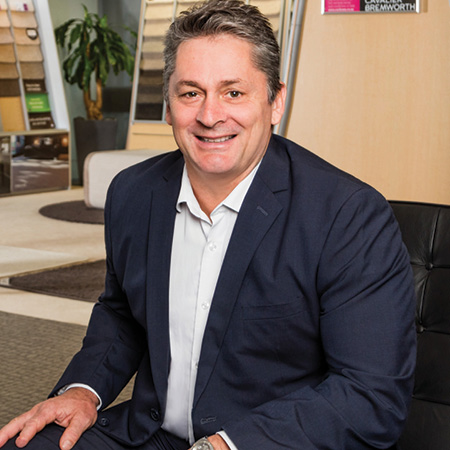In the middle of 2015, struggling New Zealand-based carpet manufacturer Cavalier Corporation appointed its CFO Paul Alston to CEO, initially on an interim basis before confirming his appointment towards the end of 2015. He stepped into a rather challenging situation, as the company was in desperate need of a turnaround operation to reduce debt and improve performance. Paul was well equipped to handle the task. The former CFO of produce marketer Turners and Growers group had been involved in numerous restructuring projects as well as mergers and acquisitions. He knew the steps that needed to be taken to bring Cavalier back to the top of its game.
“I saw a great opportunity,” says Paul. “It was an iconic New Zealand company with a great brand reputation, and I felt that was an important thing to remember.”
“When I joined, things were not going as well as they could have been, and I guess it was a perfect storm in some regard. We had wool prices going up dramatically, there was the introduction of synthetic products at the expense of wool, and we were still recovering from the global financial crisis. After a lot of hard work however, now we are on our way back up.
“We have dropped our debt by a significant amount, we are introducing more synthetics to better meet the market requirements, we have some new products coming out which we believe will help us with our growth, and we are taking out some of the costs of producing our carpets. The situation is starting to look much better.”
Cavalier’s origins date back to the 80s when the business was formed and listed on the New Zealand Stock Exchange. Its early days were prosperous: it was the world’s first carpet company to have the rights to use the Woolmark seal of quality on its products, and it successfully underwent significant expansions nationally and overseas. However, it couldn’t sustain this positive trajectory without being willing to adapt to the big changes happening within the marketplace—the biggest one being the introduction of synthetic materials—which Cavalier, a wool specialist, was late to adopt.
Paul says that seven years ago, around 70 per cent of the carpets sold in New Zealand were produced from wool. Today, this number has plummeted to somewhere below 15 per cent. “More than 40 per cent of what Cavalier does now is in the synthetic space, and that will probably keep growing,” he notes. “We have broadened our range so that we can offer more of what consumers want. In the past, Cavalier was seen as being a wool house, but we are hoping to change that perception: we want to represent quality and service.”



